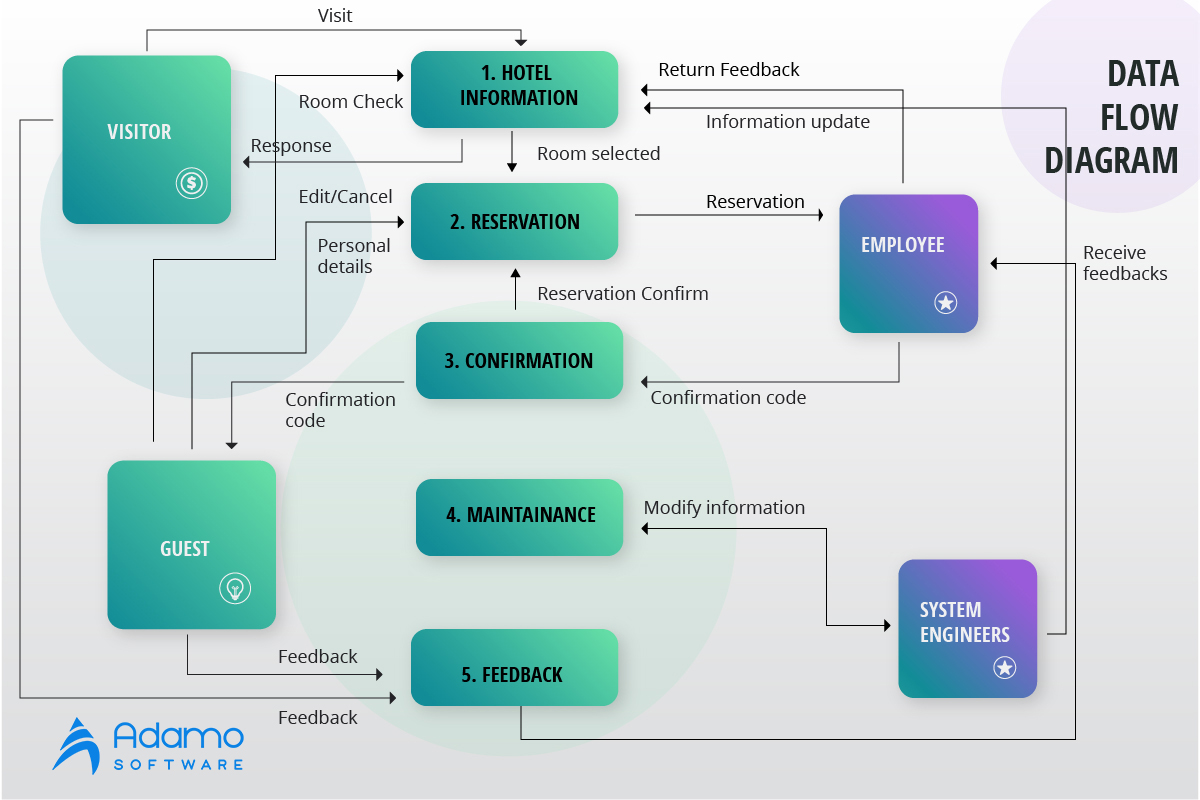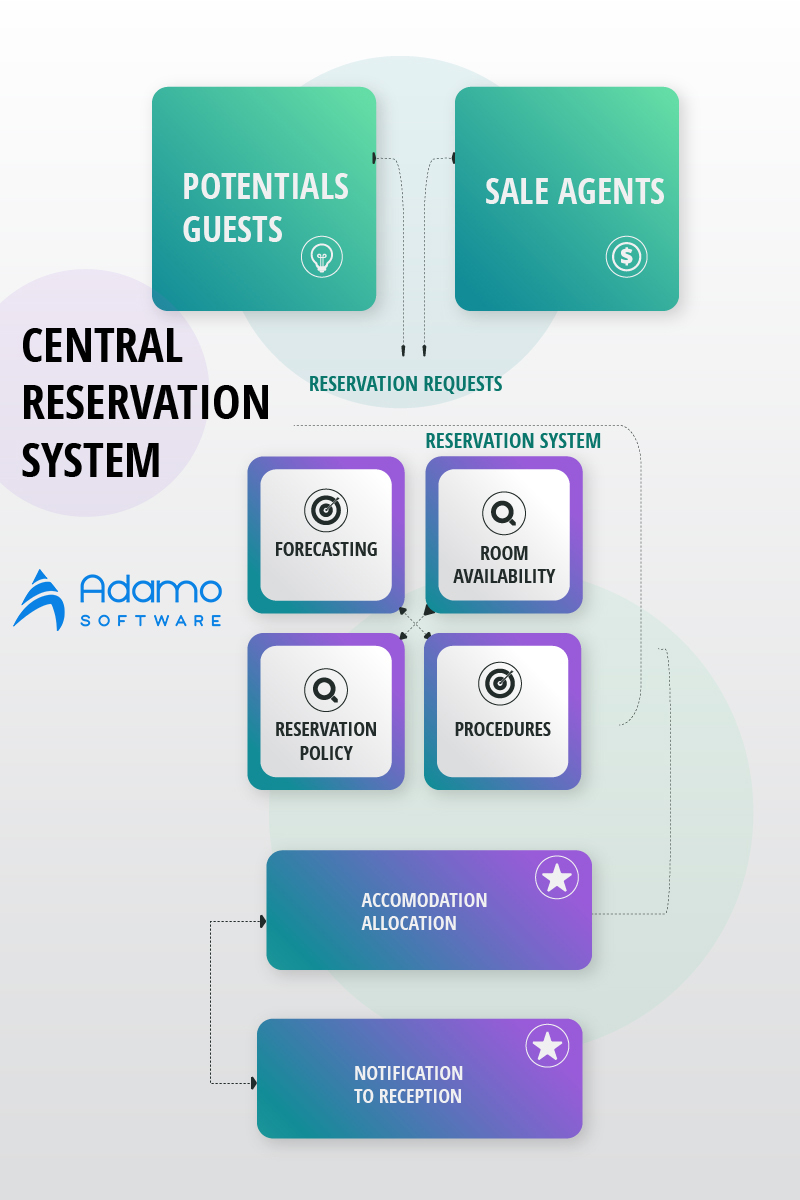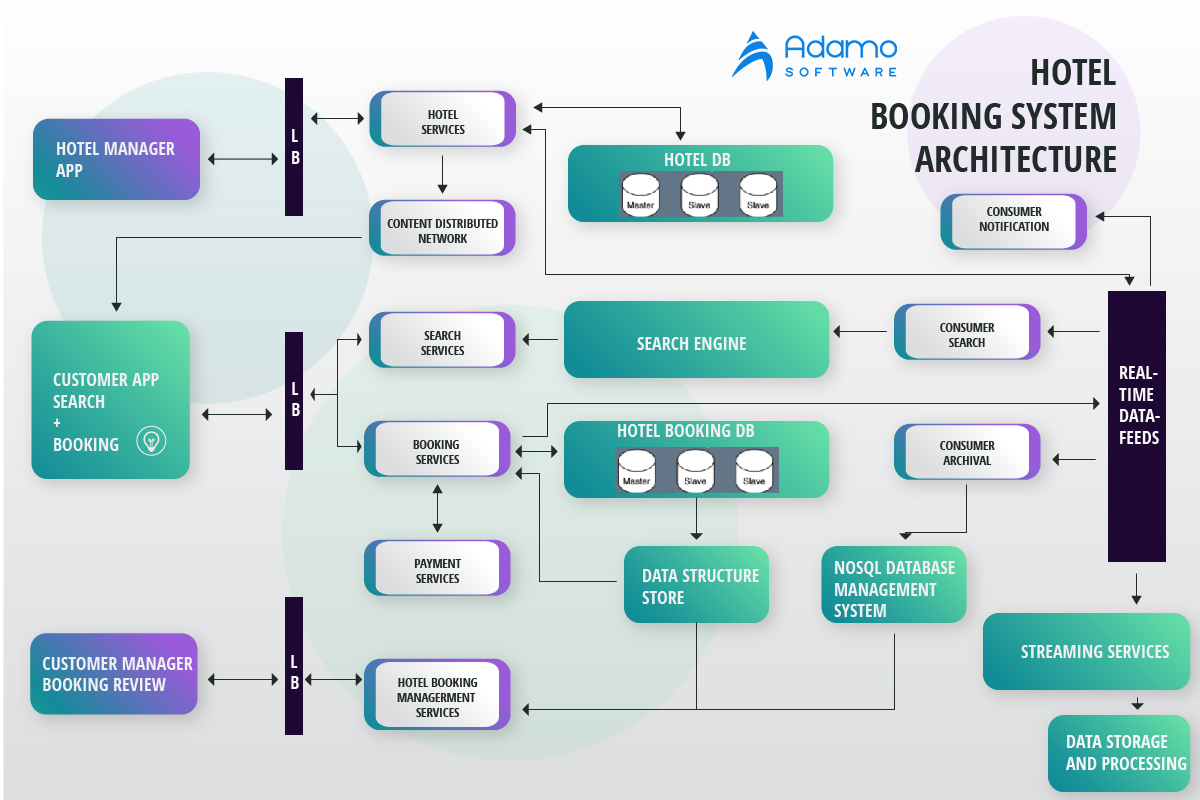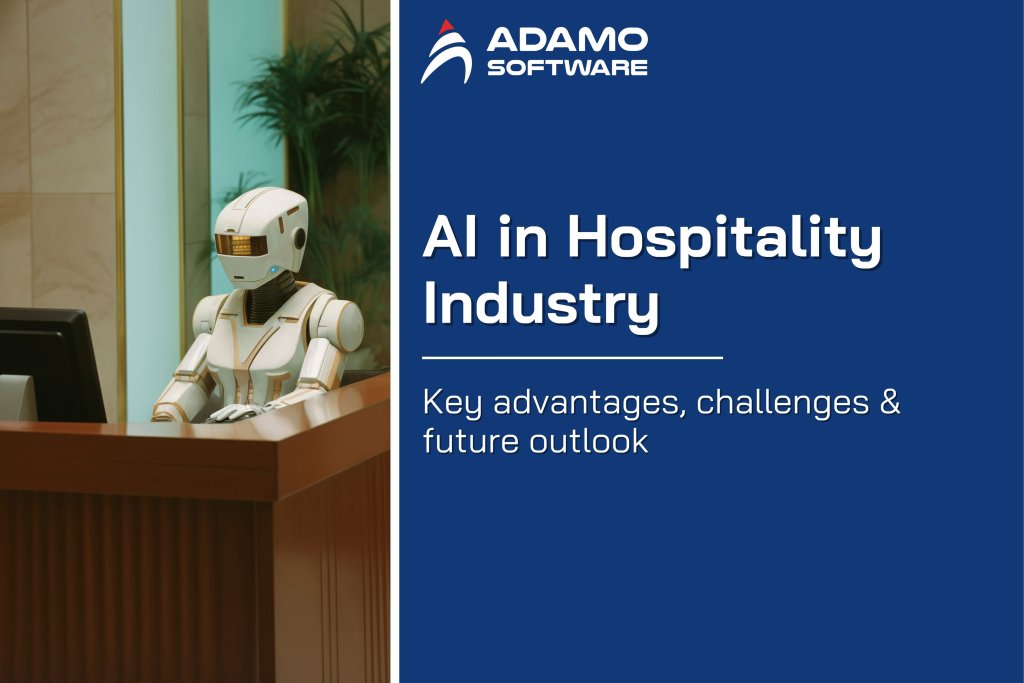Online hotel reservation system: Explore the new era of hospitality services

Travelers currently work with an online hotel reservation system for their travel itinerary plan with the marketplace hotel promotion.
Along with the convenience of online payment plus the development of e-payment technology, travelers have a high incentive to execute online hotel booking via an online hotel reservation system. Besides, online travel agents (OTAs) also enjoy major profits in applying the online hotel reservation system, which boosts the manual proficiency and accuracy in booking and payment confirmation.
As a professional hotel development company, we would show the conner of online hotel reservation systems, including common concepts, features, and system design.
Online hotel reservation system or hotel booking system
Among travel and hospitality software development solutions, the online hotel reservation system tends to be the most popular due to a massive demand for online bookings. The birth of the hotel booking system was believed to reshape the way hospitality operation. Instead of phone call booking, people are currently familiar with an online booking engine or hotel booking platform. Apart from the extreme convenience to users, the online hotel reservation system expectedly reduces roundly 20% of hotel operation fees, compared with other traditional booking methodologies.
An introduction of Online hotel reservation systems
Basically, an online hotel reservation system refers to integrating innovative technologies in the hotel booking process. It allows internet users to access the hotel availability to secure room reservations. Without direct email and message to the hotel and ask about the room, guests could visit the hotel website, booking engines, or hotel marketplace platform to book accommodations. With the streamline of multi-systems, hotel owners could automatically update their current status for booking and payment acceptance without a manual collection process as in the past.
Each online hotel reservation system works with a property management system privately managed by the hotel. Data or booking passing through the third-party online hotel reservation systems would be received by hotel management software, notifying reservations received to the property. Similar to booking directly on the hotel website, the data is also directly entered into the system without syncing with other systems.
Using an online reservation system, users could get visual details of hotel rooms, from rate, infrastructure to availability. Besides, the innovation of VR in tourism cut down the gap of the room simulation display between the internet and the real world.
Types of hotel bookings in the digital world
_ Non-Guarantee booking: Many hotels booking platforms allow pending bookings. It means that guests could place a booking without making payment at the time of booking was placed. In turn, they could handily cancel the booking if any change occurs. This type of hotel booking induces risks for hotels that their guest will not be charged any penny when canceling. In turn, hotels could control the availability and attract more booking without consideration.
_ Paid booking: commonly known as instant booking or guaranteed booking in which customers prepaid their booking. This type of booking offers more power to hotels that they restrict booking cancel. From the guest’s side, they would reduce part of the hotel front desk process when arrival.
_ Inquiry confirmation: It is only a non-confirmed booking. Inquiry performs as a note regarding requests and expected dates without any certainty will be made. Loading inquiries, hotels would need to send a quote or confirmation notice to customers.
Online booking system flowchart
The concept of online booking is not limited to only hotel booking. From the travel and tourism context, ticket booking is also available for flights, car rentals, and tourist attractions. Using the online booking system, users can place orders and manage their booking on one single site. We show the completed online booking system flowchart to understand thoroughly the process of online booking:

The online booking engine flow chart indicates the data flow inside the whole process. In practice, the common hotel booking system consists of five core features.
_ Hotel information: refer to the first layer that the hotel interacts with. In which, users access the public detail of hotels, which influence the final booking decision. In turn, this layer not only displays to users solely. It also takes charge of collecting feedback and refines information from other parts of the process.
_ Hotel reservation: after selecting the preferred room, users will turn to the next layer, Reservation. In this section, the online hotel reservation system collects guest details for booking confirmation. Also, the system enables options for booking cancelation. Data in this layer would be transferred to hotel staff for further processing.
_ Hotel booking confirmation: Turn to the next layer, the booking would be confirmed with the code sent by hotel staff, sending back to guests. They use the code as a guarantee of hotels for accept their booking.
_ Online booking maintenance: this layer belongs to system engineers, who execute information modification and feature updates.
_ Feedback will be collected from the guest during and after their arrival, which will be sent to hotel staff. They will process the feedback and return those to the hotel information layer.
Variety types of online hotel reservation systems

Central reservation system
The central reservation system (CRS) refers to a common online hotel booking system for controlling the entire reservation requests flow. CRS would integrate data from all distribution channels (hotel booking platforms or third-party booking websites, direct hotel booking, phone call reservation requests, and more) into one pool for processing management.
In terms of data transfer, the central reservation system performs as a central hub, connecting data from the property management system and distribution channels. It ensures the information regarding rates, room availabilities, or photos is up-to-date on a real-time basis.
Marketplace hotel
Instead of a central reservation system commonly developed and used as an internal management system inside hotels, a marketplace hotel system refers to apply in the third-party platform. The differentiation of marketplace hotel is that it performs as a connection, which needs three key players joining to the game:
_ Visitor- the buyers: customers who placed bookings in the marketplace hotel
_ Vendors- the sellers: hotels or providers who sell their room availability in the marketplace
_ Marketplace – the platform provider: in charge of launching and maintaining the platform performance. It connects buyers and sellers on the same page.
Must-have features of the online hotel reservation system
| Functionality | Description |
| Photo gallery | Commonly up to 25 images for hotel room showcase |
| Third-parties integration | Social media integration, payment API, analytic tracking, etc. |
| Booking summary | For summary the detail of bookings for each account. |
| Promotion codes | Ability to apply code before payment |
| Multi payment selections | Accept several payment types |
| Automated communication | Push notification, automated confirmation email, account change emails, etc. |
| Dashboard and reporting | Performance report, revenue report, accounting system, pending payment, and account balance |
| Cloud services | Allows accessing anywhere at any time and on any device. |
| Multi currently payment accepted | For foreign visitor payment |
| Support and chatbot | Offer support for visitors |
| Calendar | For selecting dates of the booking |
| Guest profile | Allow users to sign up and build their profile |
| Housekeeping management | Keep track of housekeeping team performance |
Online hotel reservation system: guide to complex design
In designing and developing the online hotel booking system, the system design process involves in create hotel booking system architecture and database design. Due to the large amount of data driving steadily into the system, the decision process is essential to deter further operational issues.
Hotel booking system architecture
Each hotel booking system needs to separate into three core flows, which can be seen as three separated sub-systems.
The first part adjusts the interaction inside hotels, which all hotel management systems. In this system, hotel services performance would be running around central hotel databased. The system stores an inner data set. It is not only hotel booking but also other information related to the whole hotel operation. That part influences how hotel offers their services to guest, which form the customer experience and journey.
The second part adjusts the features offered to customers, called the customer side app. Accordingly, the key features refer to search, room reservation, and booking management. The payment service inside the hotel customer app could be the most touch feature that needs integration with several third-party payment services. In many modern customer apps, the guest would be allowed to create an account in managing their booking and make changes if needed.
In terms of marketplace hotels, there is also a vendor-side app that allows hotels or agency managing their queries. It somehow needs to synchronize with the internal hotel manager system above. Although vendor apps cannot replace the hotel management system, they can be part of this system, driving data to hotel databases.
For vendor management, the marketplace app needs a central system to adjust the performance of vendor sites, which takes control of the whole activities of hotel partners.

Online hotel reservation system: booking database design
For processing booking and data, hotel booking database design induces challenges to system developers. In terms of database modeling, we commonly use a master-slave database design for a common hotel booking app. Accordingly, it could reduce the load inside the database.
For master-slave modeling, we will need a current master database for writing operations. Besides, the slave database refers to a replica of the master database, using in reading operations. The separation of reading and writing streams adds clarification into database performance, reducing issues clogging up the whole system.
In conclusion, despite the undeniable proficiency of online hotel booking systems in the travel and hospitality market today, developing a custom hotel booking system is never an easy task for both in-house developers and dedicated software development teams.
The industry-based know-how is required and strong IT background covering several parts of the machinery system. For a newbie, we expect the above information will help you narrow down the overview of online hotel reservation systems mad marketplace hotel solutions.





